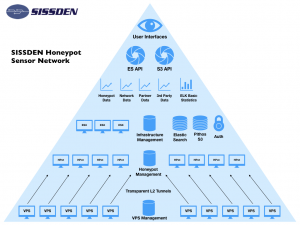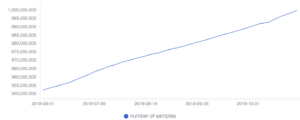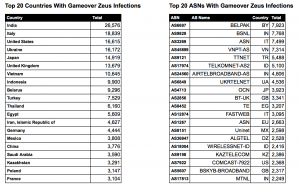Beyond the SISSDEN event horizon
October 1, 2019
Between May 2016 and April 2019, The Shadowserver Foundation participated in the SISSDEN EU Horizon 2020 project. The main goal of the project was to improve the cybersecurity posture of EU entities and end users through the development of situational awareness and sharing of actionable information. It exceeded KPIs, with 257 sensors in 59 countries, using 974 IP addresses across 119 ASNs and 383 unique /24 (Class C) networks, and collected 31TB of threat data. This blog post provides detail on Shadowserver's role in SISSDEN, including a 3 minute explainer video.




